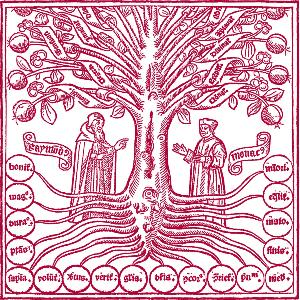Dr. Nikolina Hatton
Junior Researcher in Residence Summer Semester 2025
LMU Munich
English Literature

Junior Researcher in Residence Summer Semester 2025
LMU Munich
English Literature

Dr. Nikolina Hatton is a researcher and lecturer at the chair of Early Modern English Literature at LMU Munich. She has studied in Kirkland (Washington) and Freiburg im Breisgau. She holds a PhD from the University of Freiburg.
Her first book, The Agency of Objects in English Prose, 1789–1832 (Palgrave, 2020), examined the effects on narrative of the increasing proliferation of material objects in early-nineteenth-century literature. Her habilitation project—which is in its final stages—looks at spectrums of agency in early modern women’s religious writing through an examination of the biblical verse of Mary Sidney, Aemilia Lanyer, Anne Southwell, Hester Pulter, and Lucy Hutchinson. Her articles have appeared in Renaissance Studies, Poetica, a/b: Auto/Biography Studies, and others.
She is currently co-editing a special issue of Anglistik on Early Modern Futures. In March 2025, she co-organized the seminar Violent Women in Early Modern Drama at the Shakespeare Association of America (SAA) Annual Meeting in Boston. In April 2025, she is co-organizing the online workshop about Women Writing Violence.
Nikolina Hatton’s CAS Project, Poetic In/Justice: Invocations of Justice and Retribution in Poetry from the Sixteenth Century to the Present, builds on insights about religion and violence from the habilitation project to further examine the poetics of violence and retribution in English poetry. In seventeenth-century English poetry, poets often call on God to rain vengeance on their political enemies; in response to a massacre of Protestants in Italy, John Milton begins a poem, “Avenge, O Lord, thy slaughtered saints, whose bones / Lie scattered on the Alpine mountains cold.” While such a poem seems firmly situated within the political context of the European wars of religion, the ethical position of the poem—to invoke retributive violence in the face of perceived injustice—can be traced even up to the present day in more secular manifestations (often articulated under a westernized version of ‘karma’). Recent critical work in the history of emotions emphasizes the importance of sympathy and fellow feeling for building community, but also stresses how in- and out-groups are created in this process. Engaging with psychological, philosophical and legal concepts of justice, the project asks what affective and political functions fantasies and invocations of violence and retribution have for affected individuals and groups. This research broadens the perspective on past and current invocations of violence in poetry by situating specific iterations of this phenomena within a diachronic perspective. In so doing, Poetic In/Justice seeks to elucidate further the political functions of poetic form.

Dr. Nikolina Hatton (CAS Researcher in Residence/LMU) | Respondent: Prof. Dr. Ingo Berensmeyer (LMU)

Workshop organized by Dr. Nikolina Hatton (CAS Researcher in Residence/LMU).